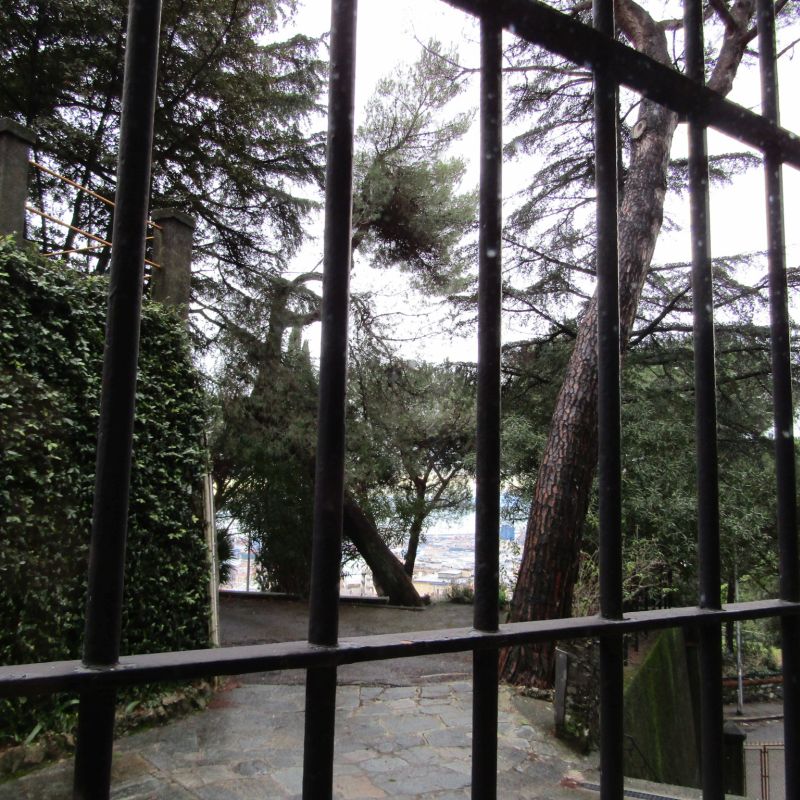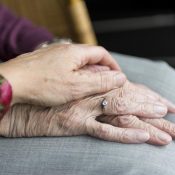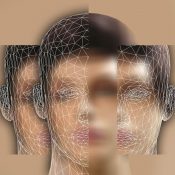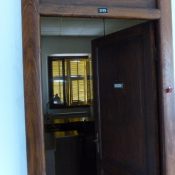Two men were about to be trialed. One was put in prison. The other was released.
The first, in prison in his cell, with only one hour of yard time a day, was very limited in his freedom and could no longer do what he did before when he was out of prison. The second one, seeing himself free, celebrated with his friends and started to do all those things he could not do while he was under arrest awaiting his sentence. After an initial period of difficult adaptation, always in front of those four walls, which, like a mirror, continually confronted him with himself, the prisoner began to realise the mistakes, large and small, that he had made throughout his life, and decided to atone for his sins, which were increasingly clear to his eyes, beginning to experience a sense of expiation and purification. With each passing day he recognised, in the face of the physical limitations to which he was subjected, his inner limitations, his struggles, his weaknesses, what had prevented him from being truly happy in the life he led before he was imprisoned.
The other man, from day to day, going from activity to activity, from distraction to distraction, intoxicated in the freedom he enjoyed, became more and more entangled in the actions he took, the people he frequented and the emotions with which he tried to fill himself more and more. The constraints that sometimes presented themselves to him, the limitations that reality placed before him, seemed more and more like an imposition and weighed heavily on him. He tried to escape and avoid anything that in any way restricted his freedom. Other people were also beginning to appear as limitations, because they did not follow him in everything he did, and the scorched earth around him grew. It seemed to him that others no longer understood him, and he was looking for impromptu, brief relationships that satisfied him in the moment but did not last long. He was more and more convinced of his intelligence and his ability to do whatever he wanted. The obstacles that arose in front of him were only problems to be analysed and overcome as quickly as possible. Everything depended on him, and in his eyes those who did not understand him were either stupid or slaves to certain dynamics, habits or customs that did not allow him to be as free as he was free. His horizon was occupied entirely by himself. Everything fit in his view; everything he understood, everything could be explained. What was beyond his control was not interesting, because it did not concern him. Anything that could provoke him or shake him up, contradict him, prevent him, hinder him, was immediately labelled as superstition or the weakness of someone who was not as strong as he was. Love itself, perseverance, stability, fidelity, began to appear to him as the defects of one who had chosen to live a life of service and not of success. Life itself was no longer enough for him, he wanted more and more, stronger emotions, more surprising relationships, more open horizons. At the same time, everyday life, made up of habits, repetitions, ordinariness, was becoming more and more oppressive, more and more boring, and he could not keep up with it. He was looking for something different, something more, something he could never achieve.
The first man had chains, he was confined within four walls, he could not get out. His horizon was a grey wall. Yet he was beginning to experience a different freedom. He had begun to choose to live as he was asked to, without seeking that extra something each time, because he realised that this instance, although it distracted and motivated him at the time, did not lead him to feel better, but rather to experience ever greater frustration. Everyday life was beginning to give him peace. He was embarking on a journey of deep self-knowledge, he was beginning to ask himself what he had lived for up to that point. What were the motivations behind his actions, his choices? And prison, with its homogeneous and repetitive rhythms, was giving him the opportunity to work on these questions, to go deep, to dissect his innermost identity, to discover who he really was. Every moment in which he felt bored was an opportunity to go even deeper, overcoming the temptation to escape that sense of emptiness but choosing it himself freely, without constraints. Once he had taken this step, boredom and anxiety gave way to a sense of peace and calm that almost made him want to spend the rest of his life in that cell, which allowed him to work so deeply on himself and deeply purify his most insane and unhealthy habits. He was healing.
The second man had no chains, he was free, he could do what he wanted. The first man could do nothing except what he was obliged to do.
We are these two men: sometimes one, sometimes the other.
2021-01-23 Guglielmo Scocco – second-year novice.









